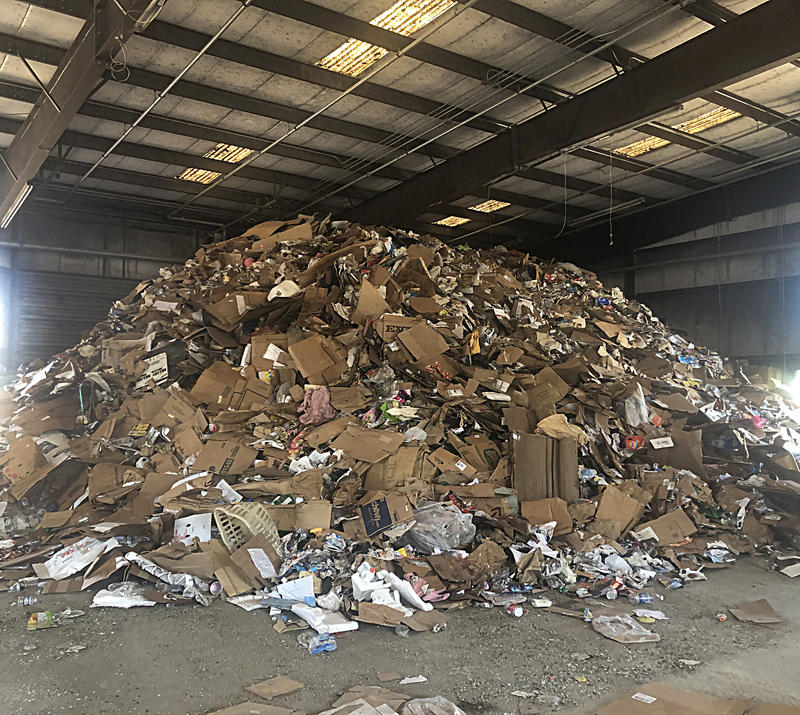Towns Struggle with Costs as ‘Corona-Recycling’ Increases by 20%

A pile of single-stream recycling grows at the Bourne Integrated Solid Waste Management Facility. (Eve Zuckoff/WCAI)
At the Bourne Integrated Solid Waste Management Facility, everything has its own smell.
“You get the gas smell, old trash smell, new trash smell, recycling smell,” said Dan Barrett, general manager of the facility. “There’s a lot of different smells, and if you’ve been around long enough, you’ll know the difference.”
After driving his truck past mounds of compost and piles of old bikes and beach chairs, he pulled into a warehouse where “recycling smell” assailed the nose.
“This is our single-stream transfer station. This was actually supposed to be a maintenance garage,” he said. “But as time went on, the importance of recycling overtook the need for a new maintenance garage.”
Now, the site is dominated by a mountain of household recycling, partly because people are spending so much time at home. More packages are being ordered, more attics are being cleaned, and more yards are being trimmed. The proof of pandemic spending—and pandemic boredom—shows up here.
“Obviously, you see a mix. You see some plastic in there, that old wash bucket there,” he said, looking at the pile. “Everybody’s ordering stuff… and that’s probably why you’re seeing a lot more cardboard in this stuff than you would normally see.”
Since the coronavirus pandemic began in March, there’s been a 20 percent increase in recycling across the Cape region. While the bump may seem like a good thing—an opportunity for town revenue and a demonstration of eco-friendly values—it’s presenting new challenges for towns and transfer stations that need to manage and pay for the recycling in new ways.
Read the rest of this story at WCAI’s website.
